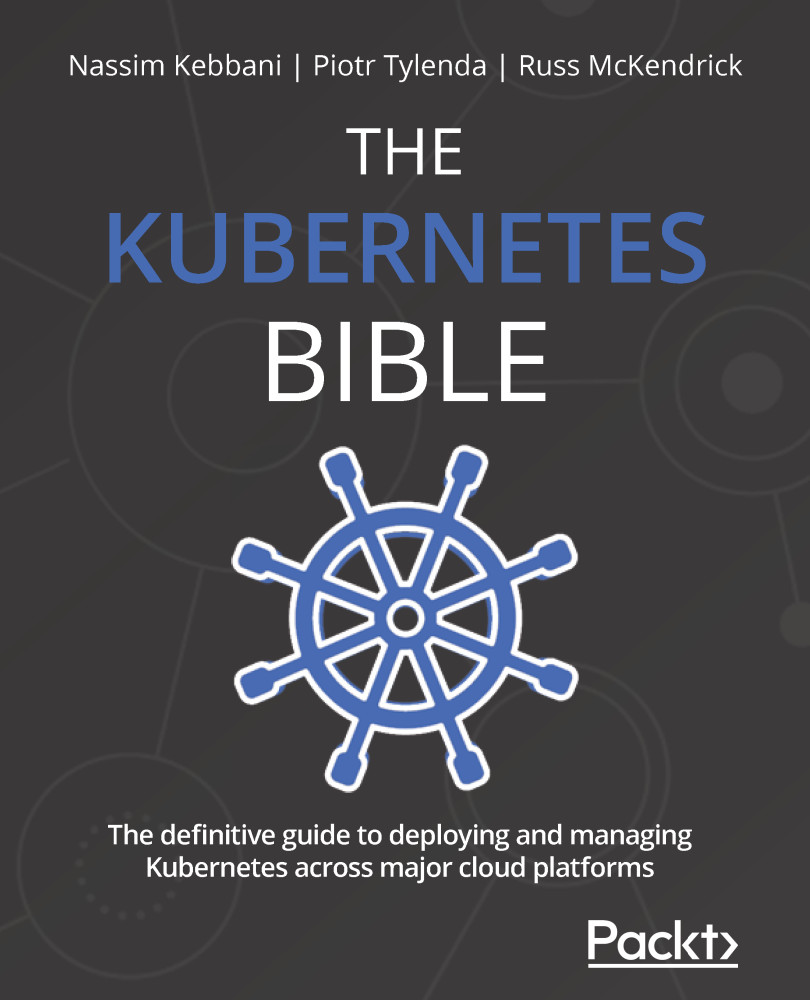-
Book Overview & Buying

-
Table Of Contents

The Kubernetes Bible
By :

The Kubernetes Bible
By:
Overview of this book
 Free Chapter
Free Chapter
 Sign In
Start Free Trial
Sign In
Start Free Trial

 Free Chapter
Free Chapter
Containers have allowed a real leap forward since their massive adoption in the world of virtualization because they have allowed greater flexibility, especially these days, when buzzwords such as cloud, agile, and DevOps are on everyone's lips.
Today, almost no one questions the use of containers and they're basically everywhere, especially since the success of Docker.
Containers have brought tremendous flexibility to organizations, but they have remained questionable for a very long time when organizations went to face the challenge of deploying them in production. For years, companies were using containers for proof-of-concept projects, local development, and suchlike, but the use of containers for real production workloads was inconceivable for many organizations.
Container orchestrators were the game-changer, with Kubernetes in the lead.
Originally built by Google, Kubernetes is today the leading container orchestrator that is providing you with all the features you need in order to deploy containers in production at scale. Kubernetes is popular, but it is also complex. This tool is so versatile that getting started with it and progressing to advanced usages is not an easy task: it is not an easy tool to learn and operate.
As an orchestrator, Kubernetes has its own concepts independent of those of a container engine, such as Docker. But when both are used together, you get a very strong platform ready to deploy your cloud-native applications in production. As engineers working with Kubernetes daily, we were convinced, like many, that it was a technology to master and we decided to share our knowledge in order to make Kubernetes accessible by covering most of this orchestrator.
This book is entirely dedicated to Kubernetes and is the result of our work: it provides a broad view of Kubernetes and covers a lot of aspects of the orchestrators, from pure container Pod creation to deploying the orchestrator on the public cloud. We didn't want this book to be a Getting started guide.
We hope this book will teach you everything you want to learn about Kubernetes!
